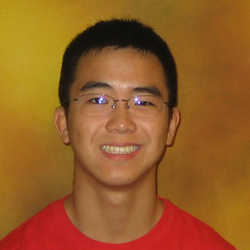Intergroup Dialogue: What's That?

By Dennis Ea '13
In response to the Campus Climate Survey in 2007, Carleton adopted a program from Skidmore College to start a student-led dialogue course that invites students to reflect on their stories and experiences regarding the categories of race, class, gender, and sexuality in their lives and during their time on campus. This two-credit course, IDSC 103: Student Conversations about Diversity and Community, seeks to encourage students to have inspired, deliberate discussion about the identity issues they face and see at Carleton. A main objective of the course is to motivate students to bring the shared stories heard in the classroom to the campus and to create action in order to approach students' concerns.
IDSC 103 was a weekly course during winter term 2011 led by two student co-facilitators with the support of the “coaches”, who are various Carleton staff and faculty. After an all-campus email advertisement, interested students were required to submit a brief application outlining their interest in the course. They were divided into one of four sections of the course to fill each section with people of different identifications and demographics. Classes ran an hour and forty five minutes and students were asked to discuss and share experiences throughout the period in response to selected readings.
Joe Baggot and Lori Pearson began training the student facilitators last spring term with occasional visits from Carleton professors in a variety of academic departments. The focus of this training course was exposure to the type of dialogue course that we were going to facilitate. In the following fall term, Joe and Adriana Estill continued the training course with the same group teaching us the responsibilities, techniques and role of the student facilitator. During these weekly classes, we read and discussed articles of a wide variety of issues and sources, did activities that challenged us on uncomfortable topics, practice room and time awareness, identify our strengths and weaknesses in our facilitation styles, understand how to set and monitor the room dynamics, challenge quieter and louder students and all viewpoints, direct dialogue to set goals to be productive, uphold class/community standards and make sure that everybody feels safe. We were also given the opportunity to lead a practice facilitation with our peers and receive constructive feedback.
Kendall Bills ('13) was my co-facilitator, and she probably taught me the most in improving as a facilitator. Not only is she very skilled as a facilitator, her ability to critique herself and me served as a valuable tool as we tried to address the needs of our class every week. We had a great experience working with our coach, mathematics professor Eric Egge. In addition to his thoughtful insight and advice every week, Eric gave us a lot of freedom to adjust the curriculum and look for innovative ways to reach our class. He showed a lot of faith in us as facilitators and it meant a lot to have his support going into every class period.
Our goal of inspiring students in the course to go into the campus and speak about important issues with their friends has been reached this term. I've heard that former students from this course are initiating frequent dialogue in their friend circles about identities and how they play an impact in their life on campus. For example, I am a part of a group of former IDSC 103 students that meets weekly to discuss issues that weren't touched on in class. Our goal has been to invite a new friend every week to join us in the dialogue and to take turns facilitating and choosing a topic. Ever since this IDSC pilot program started, we've recognized that we need to reach out to people on campus who normally don't attend diversity events/programs to inform them of issues that affect us all and our communities. I believe that the effects of this course are helping students make this change.